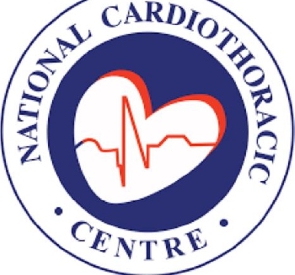Dr. Aba Folson, a Cardiologist at the International Maritime Hospital (IMaH), Tema has stated that being diagnosed with hypertension is not a death sentence but rather a warning for patients to control it.
Dr. Folson, who is also the Treasurer of the Ghana Society of Cardiology, noted that seeing diagnoses of hypertension as a death sentence tends to prevent patients from taking their medications and following their doctor’s advice to control it.
She disclosed that with this perception, some of those diagnosed were not religiously checking their blood pressure and altering their lifestyle as a way of controlling it, adding that with this, they stand a higher risk of developing fatal complications and even death.
Dr. Folson said this at the weekly “Your Health! Our Collective Responsibility! A Ghana News Agency Tema Regional Office initiative aimed at promoting health-related communication and providing a platform for health information dissemination to influence personal health choices through improved health literacy.
The Ghana News Agency’s Tema Regional Office developed the public health advocacy platform “Your Health! Our Collective Responsibility” to investigate the components of four health communication approaches: informing, instructing, convincing, and promoting.
Dr Folson was speaking on the topic; “Measure blood pressure accurately, control it and leave longer,” which is the theme for the “May Measurement Month” and the “World Hypertension Day” commemoration.
The IMaH Cardiologist said such complications include blindness, kidney failure, stroke, heart attack, erectile dysfunction, and dementia, among others.
Dr Folson reminded the public that uncontrolled hypertension has a higher risk of causing damage to every organ in the body including the heart, brain, feet, lever, and eyes, among others.
She therefore advised patients to make a conscious effort to control their blood pressure by following the instructions of their doctors and taking their medications as well as follow health lifestyles such as exercising, regular check-ups, eating of fruits and vegetable, avoiding excessive consumption of salt and meat, avoid smoking and many others.
She said having a consistent blood pressure above 140/90 was a cause for concern as that could be diagnosed as hypertension, explaining that the upper reading represents when the heart was pumping blood while the lower measure is for when the heart was relaxing.
She encouraged the public to buy their own automated BP machines, or regularly check from the pharmacies or hospitals to always be within the accepted rate.
She said issues of hypertension must be of great concern to all as it was the most influential disease all over the world adding that it also has a lot of long-term effects on the body.
Francis Ameyibor, Regional Manager of Ghana News Agency Tema, explained that “Your Health! Our Collective Responsibility” is part of a collaborative effort to establish a means for the dissemination of health information.
He said existing evidence indicates that mass media can help increase awareness of a health problem, raise the level of information about health topics; make a health topic or problem more salient, thereby sensitizing the public.
Ameyibor, therefore, called on both the traditional and social media managers to devote some time to engaging health professionals to educate the public, saying that “the education we offer today through our media platform may save a life tomorrow.”
Health News of Tuesday, 23 May 2023
Source: GNA

















